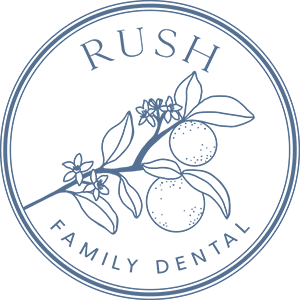When it comes to caring for our teeth, brushing is one of the most basic, yet most important, things we can do each day. But just as vital as brushing itself is choosing the right type of toothbrush. With so many options on the market, it’s easy to feel overwhelmed or to simply grab whatever brush is cheapest or most convenient. But the truth is, using the wrong toothbrush can lead to gum irritation, enamel erosion, plaque buildup, and other issues that might send you back to the dentist sooner than you’d like.
At Rush Family Dental, we believe that informed choices lead to healthier smiles. In this guide, we’ll share what we’ve learned from helping patients of all ages pick the toothbrush that works best for their unique needs and habits.
Manual Toothbrushes: Tried and True
For decades, manual toothbrushes have been the standard choice for cleaning teeth. They’re affordable, simple, and available everywhere from grocery stores to pharmacies. But choosing the right manual brush still takes a little consideration. We always recommend looking for brushes with the American Dental Association (ADA) Seal of Acceptance. This seal ensures the bristles are soft enough not to harm enamel or gums, while still being effective at removing plaque.
Soft bristles are key. While some people believe hard bristles clean more thoroughly, the opposite is true—hard bristles can wear down enamel and cause gum recession over time. A smaller brush head also allows you to reach tight spots behind molars and along the gum line more comfortably. Ultimately, with the right technique and a soft-bristled ADA-approved brush, a manual toothbrush can work just as well as more expensive electric models.
Electric Toothbrushes: Extra Power, Better Results
Electric toothbrushes have surged in popularity over the past decade, and with good reason. These brushes do much of the work for you, oscillating, vibrating, or rotating thousands of times per minute. Numerous studies have shown that given equal amounts of time, and with similar brushing technique, electric toothbrushes produce superior results to manual toothbrushes. This is in large part due to their ability to make up for less ideal brushing technique.
There are also many features available with electric models, including built-in timers, to help ensure you brush for the recommended two minutes, pressure sensors to prevent you from brushing too hard, and even Bluetooth connectivity to track your brushing habits. While you don’t need to spend hundreds on the latest high-tech brush, we recommend choosing an electric toothbrush that is ADA-approved and has soft bristles, just like a manual brush.
Some of our patients feel they clean better with a manual brush, while others prefer the convenience and performance of electric models. There’s no one-size-fits-all answer—it’s about finding what helps you maintain consistent, effective brushing habits.
Toothbrushes for Children
Helping children build healthy brushing habits is just as important as the toothbrush itself. For kids, toothbrushes should have smaller heads and soft bristles. Many children also do well with electric toothbrushes, especially those with built-in timers or musical cues that make brushing more engaging and fun.
Children often brush too quickly or unevenly, missing spots in hard-to-reach areas. An electric toothbrush can help with thorough cleaning, but just like with adults, technique and supervision matter most. Make brushing a part of your family’s daily routine and try to supervise younger children until they’re able to brush well on their own.
Keeping Your Toothbrush Clean and Effective
No matter which toothbrush you choose, keeping it clean and replacing it regularly is essential. Bacteria, toothpaste residue, and moisture can cause bristles to fray and degrade. Replace your toothbrush—or the brush head on your electric toothbrush—every three to four months, or sooner if the bristles look worn.
Avoid covering your brush or storing it in closed containers while still wet. Instead, store it upright in the open air so it dries quickly. And don’t forget: if you’ve been sick, it’s a good idea to replace your toothbrush once you recover.
Frequently Asked Questions About dental cleaning
How often should I get a dental cleaning?
We recommend visiting our office for a dental cleaning at least twice a year. Regular cleanings help prevent plaque buildup, remove tartar, and give us a chance to check for any early signs of decay or gum disease.
Do I still need to brush and floss regularly if I get professional cleanings?
Yes! Daily brushing and flossing at home are critical. Professional cleanings complement your at-home care by reaching areas that toothbrushes and floss can miss, removing hardened deposits, and checking your overall oral health.
At Rush Family Dental, we care about helping our community achieve brighter, healthier smiles. From routine checkups to comprehensive care for the whole family, we’re here to support you every step of the way. Contact us to schedule your next appointment.
